
8. Suspiria
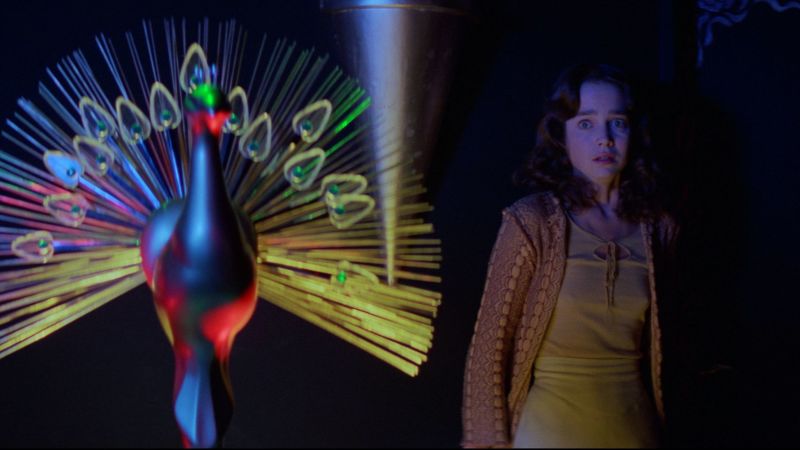
‘The only thing more terrifying than the last 12 minutes of this film are the first 92’ Dario Argento’s technicolor nightmare is as beautiful as it is scary. Argento is perhaps the most famous and respected of the Italian horror directors that came to prominence in the 1970s and ’80s and many often cite Suspiria as his masterpiece. You can see why.
It is absolutely gorgeous, filled with lush reds, blues and greens. The murder set-pieces are unlike anything seen in horror cinema in the 1970s, owing a great deal to old masters like Orson Welles and Hitchcock, but with a hyper violent twist. The film’s typically 1970’s score by Italian prog-rockers Goblin adds to the surreal nature of the film. While it didn’t make a lot of waves in America or the UK in the 1970s, the film has found an audience on VHS and DVD and has since become a cult classic. A rumoured remake has, thankfully, been cancelled.
9. The French Connection
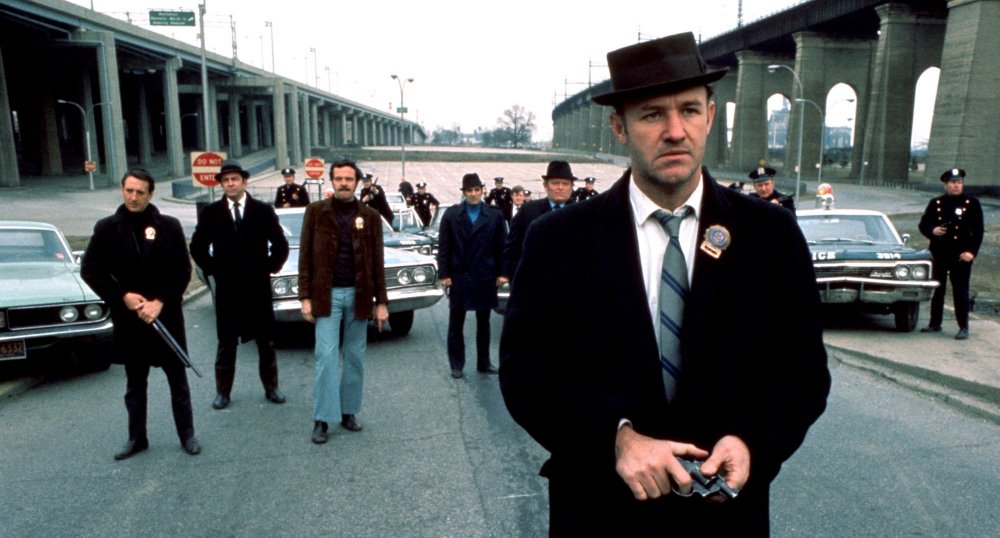
‘Doyle is bad news – but a good cop’ The French Connection is one of the best crime thrillers of all time. The film, which is about a pair of New York narcotics cops who uncover a drug smuggling operation, set a new standard for police films and features one of the most intense car chases in cinema history. The film’s director William Friedkin decided to shoot the film with a realism hitherto only seen in documentary films and the results are something to behold. The car chase, in particular, makes you feel like you are a witness to something that is really happening. This could be because Friedkin didn’t bother to secure permits to shoot the chase and filmed it illegally with the help of off-duty NYPD officers.
Many mistakes happened during the frantic chase and a man who was on his way to work had his car smashed into during the mayhem. He had no idea a car chase was being filmed. The material may just be a take on the old cops and robbers formula, but Friedkin’s direction and the performances from Gene Hackman and Roy Schneider raise this one above the rest.
10. Network
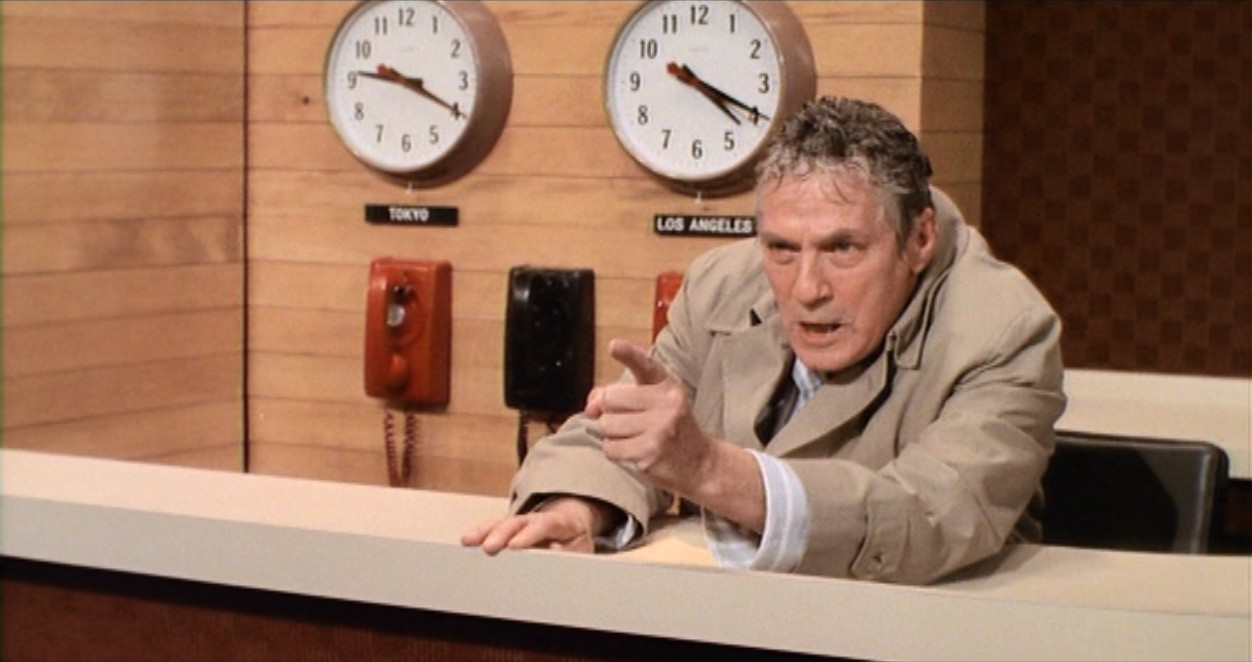
‘Television will never be the same’ Sidney Lumet’s satire of network television was eerily close to predicting the future of the medium. While it didn’t specifically namedrop Jerry Springer or The Kardashians, it certainly did its best to warn us for the evils to come. The story concerns Howard Beale, a long-serving anchor who is told that he will be fired within a fortnight because of his declining ratings. Beale threatens to kill himself on air on his next broadcast and produces a bunch of long diatribes condemning contemporary society.
Eventually, drastic measures are taken to contain Beale, whose popularity is rapidly increasing. The performances in Network, like many ’70s films, are absolutely first-class. Peter Finch as Howard Beale is especially good and he was posthumously awarded the Academy Award for Best Actor in 1977. Network is a film that is perpetually relevant.
11. Jaws
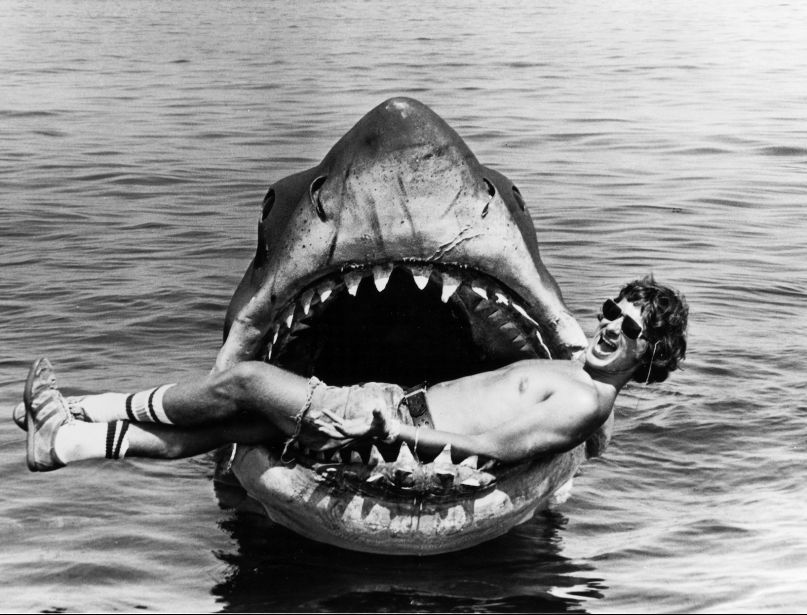
‘You’re gonna need a bigger boat’. You can’t talk about the film in the 1970s without talking about Jaws. Spielberg’s 1975 monster movie birthed the blockbuster and changed the face of American motion pictures forever. The idea is, as all good ones are, a simple one: man versus shark. In the hands of a lesser director, this would be an excuse for a cinematic bloodbath, but Spielberg chose to go another direction and the results are spectacular. The shark (which Spielberg admitted to being fake-looking) is rarely glimpsed throughout the film’s runtime. This just builds up audience suspense and, when the shark finally surfaces, the popcorn flies.
There are some truly ingenious scares in Jaws and audiences flocked in droves to see them. Made for $9m, the film grossed $470m at the box-office (and millions more in merchandise). Suddenly, films were released on thousands of screens simultaneously with huge advertising campaigns. The film industry never looked back. A watershed moment (pardon the pun).
12. The Exorcist

‘Something beyond comprehension is happening to a little girl on this street, in this house. A man has been called for as a last resort to try and save her. That man is The Exorcist.’ Jaws may have been the first blockbuster, but The Exorcist certainly set the ball in motion two years earlier in 1973. The Exorcist, like Jaws, was also base on a best-selling novel and made on a modest budget ($12m). It grossed over $400m at the box-office, launching director William Friedkin onto the A-list and creating a pop culture phenomenon. Let’s face it, everything has parodied The Exorcist at some point. The film had a troubled shoot, with the tyrannical Friedkin doing his best to scare or piss off everyone that he could (he fired a gun next to Jason Miller’s head and slapped a priest to get the right reactions for a scene).
There have also in the years since been claims that the production was cursed, as an unusually high amount of people associated with the film died and other spooky things went one. The film was a hit with critics and audiences, amassing ten Academy Award nominations and becoming the first horror film to be directed for Best Picture (it lost to The Sting). The Exorcist, an expertly made film, is one of the scariest of all time and still has the power to frighten when watched today.
13. One Flew Over The Cuckoo’s Nest
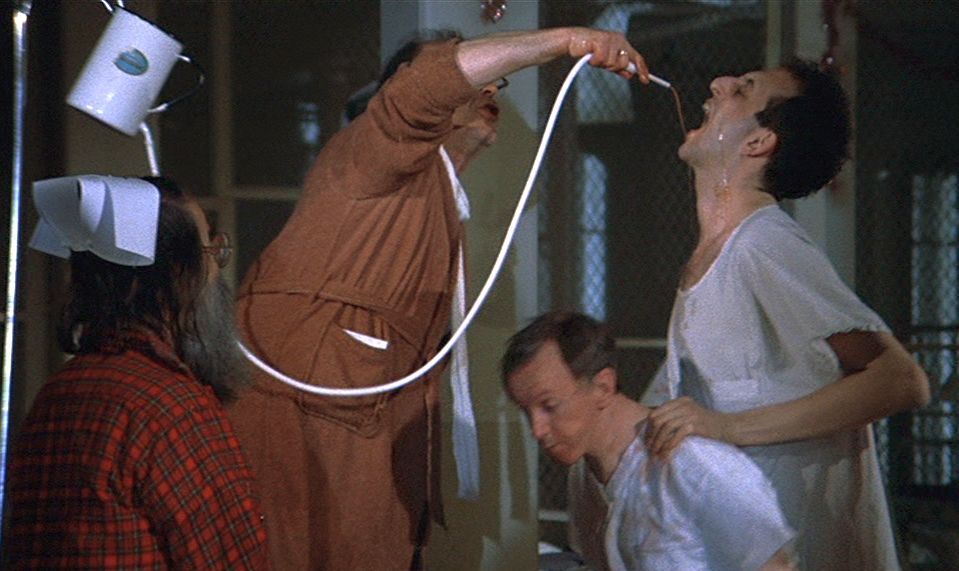
‘If he’s crazy, what does that make you?’ Milos Forman’s 1975 drama film about a seemingly sane man’s stay in a mental institution was only the second film in history to win all five of the major Academy Awards after 1934’s It Happened One Night. One Flew Over The Cuckoo’s nest is good value for it too as the film has many moments of brilliance. Jack Nicholson steals the show (naturally), but the supporting players are given a chance to shine as well. Watch out for a young Danny DeVito and a debuting Brad Dourif.
The onscreen battle between Nicholson’s Randle Murphy and Louise Fletcher’s wicked nurse has been read as a personification of the 1970s culture wars. Keeping it authentic (as was often the case on 1970s productions), most of the actor’s chose to stay in character when not filming and many of the extras were actual patients at the hospital.
14. The Conversation
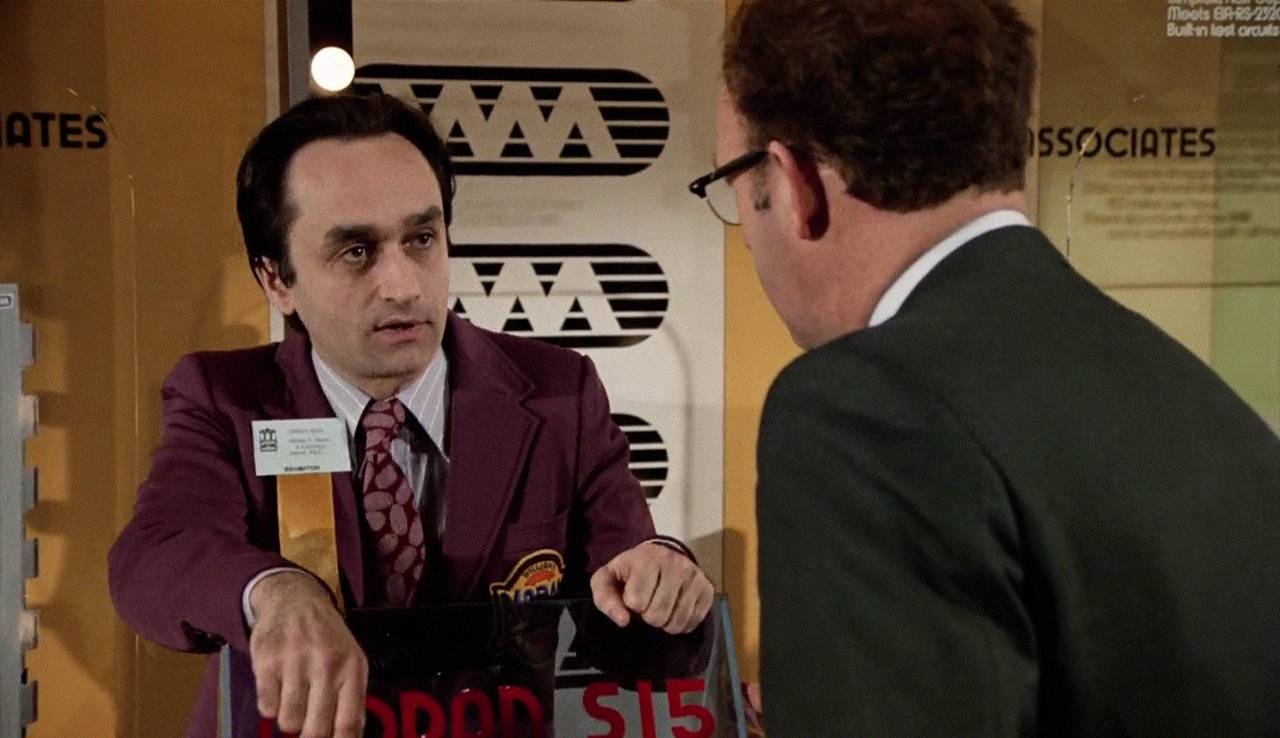
‘Harry Caul is an invader of privacy. The best in the business. He can record any conversation between two people anywhere. So far, three people are dead because of him.’ Gene Hackman was just one of many actors who had their best years in the 1970s. Hackman’s output throughout the decade was impressive, if not erratic, and he had great turns in films as varied as Superman, Prime Cut, The French Connection, Night Moves and the underrated Scarecrow. Hackman was one of the decade’s best actors and in The Conversation, it could be argued that he gives his best performance as Harry Caul, a surveillance expert who has a crisis of conscience when he starts to think that the couple he is spying on is going to be murdered. Taking cues from Michelangelo Antonioni’s Blow-Up, the film goes into extreme detail exploring themes such as perception versus reality and duty versus occupation.
The film was released just a few months before Watergate, causing some to believe that the film is a commentary on the scandal. The Conversation was nominated for Best Picture, but lost to The Godfather: Part II, another Francis Ford Coppola film. The director really did have the Midas touch for a time in the seventies. A tension-filled piece of 1970’s paranoia that you need to see if you haven’t already.
